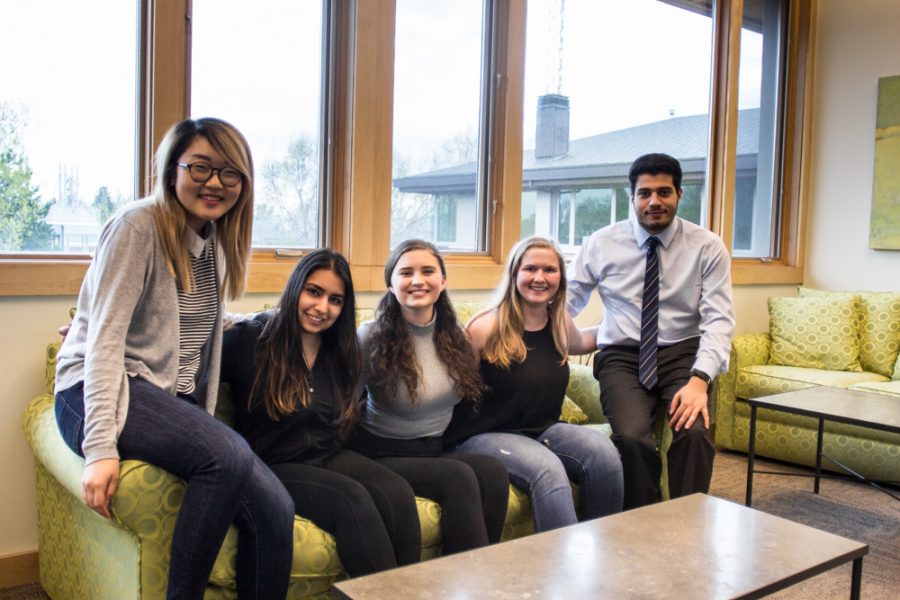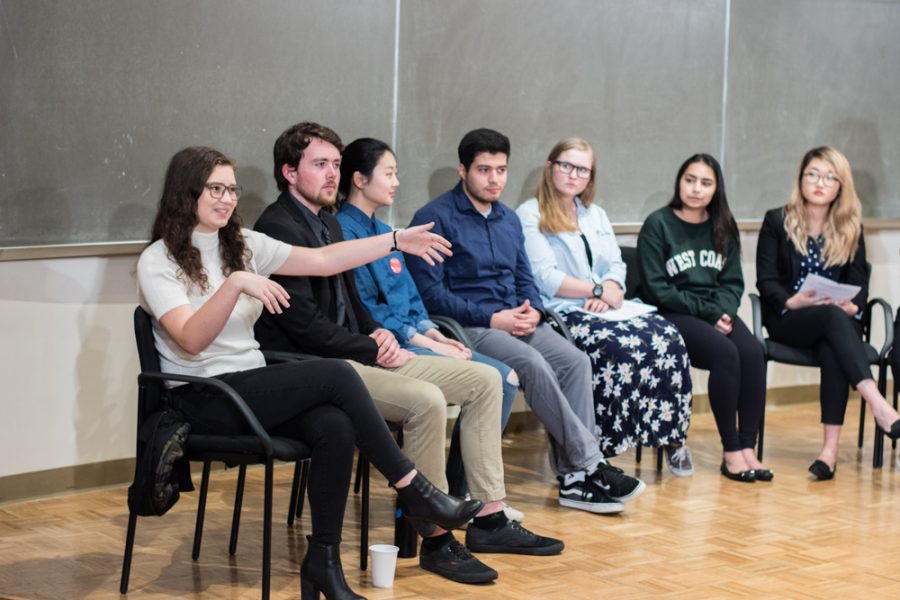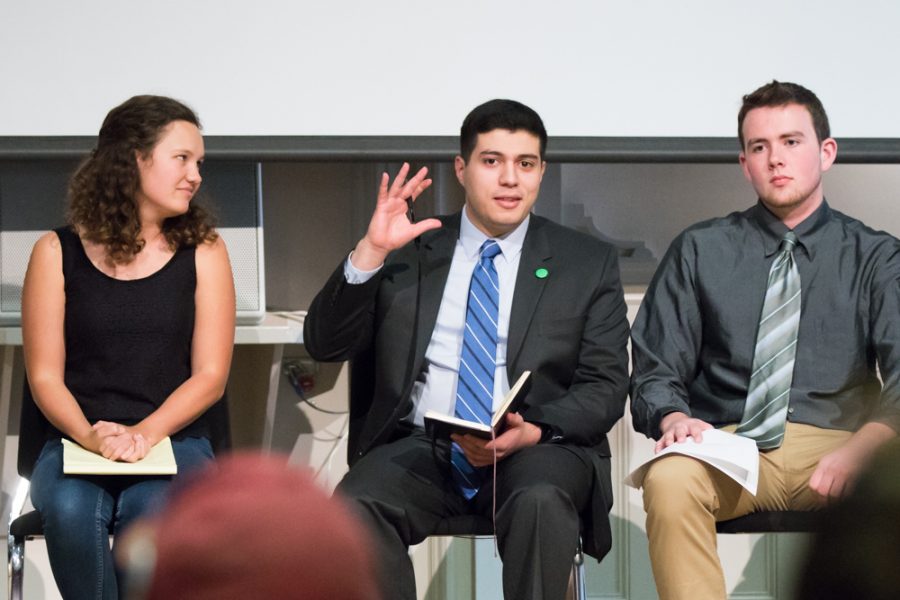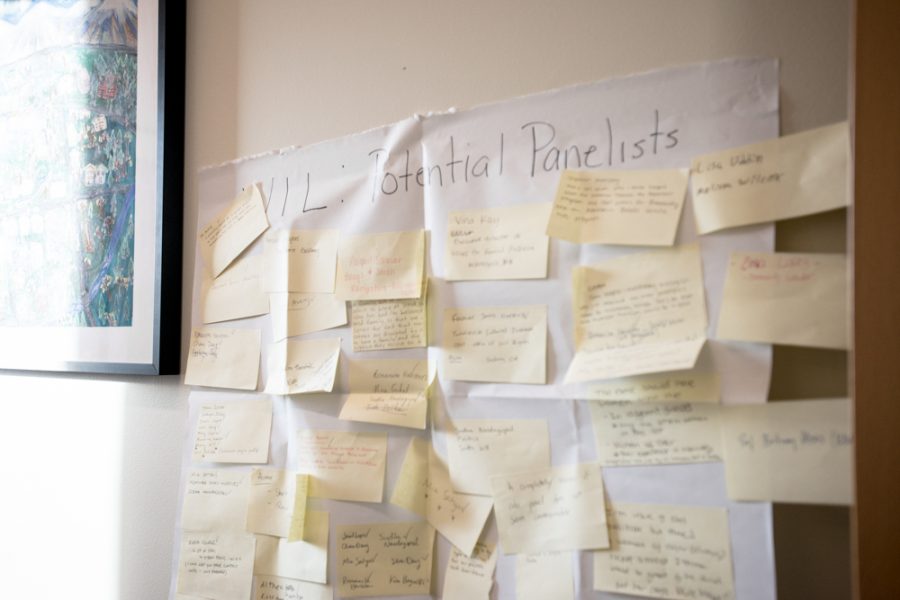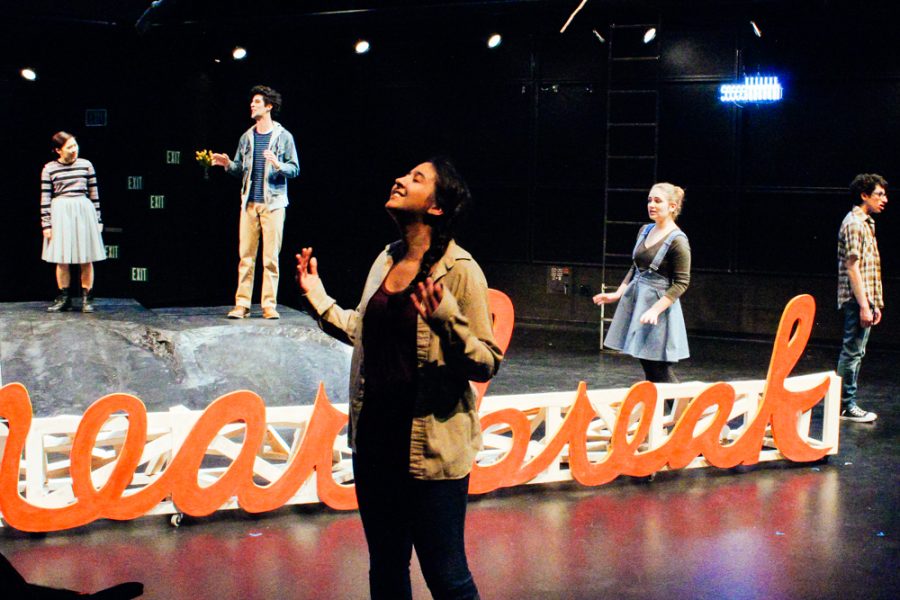Whitman’s Board of Trustees meets four times each year to discuss the state of the college. This Thursday and Friday, Feb. 6 and 7, they met again to discuss divestment and diversity.
Due to student unrest and a protest during the last board meeting, the student representatives to the Board of Trustees’ Student Life Committee, senior David Fleming and sophomore Brenna Feeney, decided to evaluate students’ thoughts on issues relating to race, religion, socioeconomic class, gender and sexual orientation before the board meeting this past week. They sent out an anonymous survey via the student listserv.
“It was really remarkable the response that we got. In about 24 hours we got over 400 responses, which is unreal,” said Feeney.
With responses from a total of 430 students, the committee received input from over a quarter of the college. That quarter was also fairly representative of the student body: of those responding, 35 percent were part of the Greek system, 18 percent identified as GLBTQ, 18 percent were people of color, 31 percent identified as working class and 60 percent were women. The survey found that students felt the college dealt well or very well with issues of gender and sexual orientation, but did not deal as well with issues of race and class.
“We wanted to know ‘What is the student body saying about how we could facilitate better conversation?’ or ‘What can the administration do to better facilitate better conversation?’ Not only facilitate, but educate,” said Fleming.
Feeney also emphasized the need for the administration to educate students about how to have these conversations.
“So people can have these discussions in a safe place where they can leave their political correctness at the door and speak more candidly. But not only creating those spaces, but also educating people so that they know how to have educated arguments,” said Feeney.
Fleming and Feeney said students responding to the survey hoped that trainings on how to talk about race and class would be available not only to students and resident assistants, but also to members of the faculty and the administration. There were suggestions to bring in outside trainers that could work with the entire campus. Students said that they wanted bigger discussions of race and class in Encounters sections, as well as in other classes that may not necessarily focus on those topics. Many students also requested that the college provide annual funding for the Power and Privilege Symposium.
“Our goal is to effectively represent the student body and to make sure that the trustees are aware of what’s going on on campus so that they can more effectively make decisions that improve campus life for the students. That’s something that they’re very dedicated to,” said Feeney.
Chair of the Board of Trustees Peter van Oppen ’74 commented that the members of the Board look forward to student input more than any other part of the meetings.
“Most of [the members of the Board] will say at the end of a meeting, ‘My favorite thing was meeting with some student on some issue,'” he said.
According to van Oppen, the Board of Trustees is not in charge of changing college policy in terms of student services, curriculum and day-to-day management, but instead allocates funds to initiatives and resources in which students and faculty show interest.
“What the trustees try to do is foster an environment where resources and talent are available to do the things necessary to educate the community,” he said. “We try to empower [Dean of Students] Chuck [Cleveland], [President] George [Bridges], whoever with the resources and support to what they think is necessary to help address a problem.”
Fleming spoke to the role of the Board as well.
“It does change the conversation a bit. It’s not that we’re going up to the trustees and demanding a change in policy, because, frankly, they can’t do that. We tried to present some tangible ways that the trustees could help in allocating resources to the things students are interested in. We’re kind of the messengers, providing out input, and then the trustees can utilize that.”
On Saturday, Feb. 8, the Board of Trustees collaborated with ASWC and came out with a statement regarding divestment.
“We’ve seen intelligent discourse from students, from others, and I think the board is generally supportive of the climate change initiatives,” said van Oppen on Wednesday before the meeting. “What we’re hamstrung by is the conflict between our responsibility to earn the most money for the college in a prudent and legal way to support students. We have this conflict between our obligation to maximize returns consistent with low risk versus trying to use the endowment to accomplish a social policy.”
He added that every student, whether or not they receive financial aid, is affected by the endowment. It comes in the form of an endowed professorship for your favorite professor or financial aid for your best friend, who may not have had the means to come to Whitman.
The resolution decreed that the Board would not divest from companies that invest in fossil fuels because it would not be in the college’s best interest to do so. The Board agrees with on-campus groups that climate change is cause for concern, but does not believe it to be prudent to divest, as this could put Whitman in an unstable position without having much effect on the companies at all.
“Ten to 15 percent of the global economy is tied to energy, not people who use energy, but people who produce or have a stake in energy, and to unilaterally decide not to participate in that is difficult,” said van Oppen. “This is a big ask, where I’m not sure we have the ability to have much effect.”
ASWC passed resolution SRS 13.3 a year ago, which created a committee made up of students, board members, faculty and staff to explore what effect divestment from fossil fuel companies could have on the endowment. The resolution was created in response to petitions sent to the trustees and a student panel weighing the pros and cons of divestment. SRS 13.3 was brought up again at this trustee meeting in the hope that the college would meet more of the demands in it with the decision on Saturday.
One of the original writers of the resolution, sophomore and ASWC Vice President Jack Percival, weighed in.
“I think that the resolution has definitely been taken into account by the trustees, and while they agree with the moral argument, they don’t think that it is financially prudent to divest from fossil fuels at this time. I was pleased that they did form an exploratory committee to examine the financial implications of divesting, but with regards to the first ‘resolved’ clause asking to limit new investment in fossil fuel, they really have no say over where various fund managers invest money. In short, I think that the extent of their response to the resolution has been reached.”
van Oppen agreed with this sentiment.
“There is a lot of support for the thought, but it’s about balancing priorities.”





